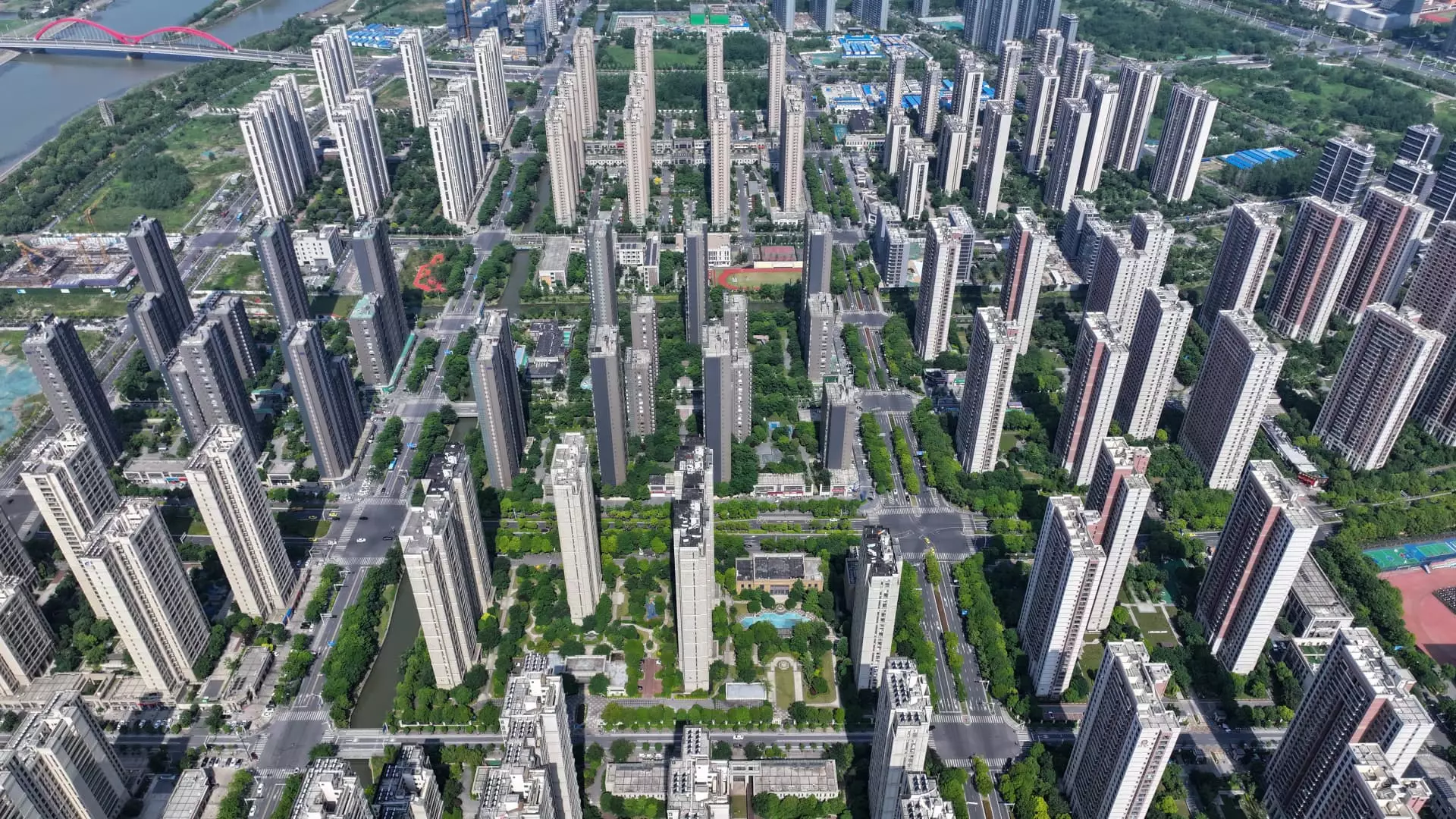In a notable turn of events, shares of Chinese property stocks listed in Hong Kong have soared to their highest levels in over a year, signaling a potential recovery in a sector long beleaguered by economic challenges. This upswing aligns with the broader trend of China’s stimulus measures aimed at rejuvenating its economy, particularly in light of the ongoing Golden Week holiday, during which mainland Chinese markets remain closed. The real estate sector has emerged as a significant contributor to the Hang Seng Index’s strong performance, painting a rather optimistic picture for investors.
Among the standout performers, Longfor Group Holdings set the pace, witnessing an impressive jump of over 25%. Other real estate giants have also joined the rally, with Shimao Group experiencing an extraordinary leap of over 87% and Kaisa Group achieving a 40.48% increase in stock prices. These developments reflect a renewed confidence among investors, eager to capitalize on what they hope will be a sustained recovery in the real estate sector. China Overseas Land and Investment also saw a notable increase, climbing 12.31%, underscoring the overall optimism gripping the market.
Recent moves by major cities in mainland China to ease purchasing restrictions are a direct response to the need to enhance homebuyer confidence. These measures include the complete removal of home purchase restrictions in Guangzhou and the reduction of the required tax-paying period in Shanghai. Shenzhen’s decision to allow buyers to acquire additional apartments in selected districts further reflects a concerted effort to stimulate demand. Despite these cautiously optimistic signals, analysts warn that reviving prices and drawing in demand to pre-2020 levels will be a formidable challenge.
Despite the recent buoyancy, skepticism remains regarding the sustainability of this recovery. Morgan Stanley has expressed concerns that the property sector’s recovery could be stymied by ongoing structural issues, which have been in place since Beijing’s crackdown on real estate debt starting in 2020. The firm noted that while current measures may stabilize the market in the short term, they are unlikely to produce a swift turnaround, especially with real estate historically contributing over 25% to China’s GDP.
While the recent stock price surges may give the impression of a robust recovery, the reality is more nuanced. The macroeconomic landscape poses several risks and challenges that may deter long-term growth. Past initiatives aimed at stabilizing the market have often faltered, leaving lingering questions about the effectiveness of government strategies. As the market dynamics evolve, investors will need to tread carefully, balancing optimism with a realistic assessment of the fundamental health of the property sector in China. Whether this surge is a temporary blip or the beginning of a sustained recovery remains to be seen.

